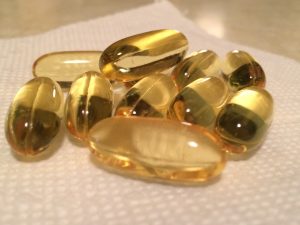 Some people choose to have pets for companionship and/or for work related purposes, while others choose to not have any at all. Many debate whether the stress of owning a pet is really worth all of the extra effort. The answer to this question is really dependent on the individual, but I will choose to focus on the potential positive outcomes that may come from owning a pet. Just because there are positive health benefits to owning a pet does not mean that just anyone should go out and get a dog/cat/fish/lizard/etc. Owning a pet requires commitment, patience, budgeting, and so much more. Also worth mentioning is that much of the research conferring that pets offer health benefits is based off of owning a cat or a dog. This does not mean that there are not any health benefits to owning fish, lizards, or other pets; but there may be different health benefits than those listed below. For example, there has been quite a bit of research behind fish tanks and how having one can actually decrease stress, promote relaxation and even decrease behavioural distress in children.
Some people choose to have pets for companionship and/or for work related purposes, while others choose to not have any at all. Many debate whether the stress of owning a pet is really worth all of the extra effort. The answer to this question is really dependent on the individual, but I will choose to focus on the potential positive outcomes that may come from owning a pet. Just because there are positive health benefits to owning a pet does not mean that just anyone should go out and get a dog/cat/fish/lizard/etc. Owning a pet requires commitment, patience, budgeting, and so much more. Also worth mentioning is that much of the research conferring that pets offer health benefits is based off of owning a cat or a dog. This does not mean that there are not any health benefits to owning fish, lizards, or other pets; but there may be different health benefits than those listed below. For example, there has been quite a bit of research behind fish tanks and how having one can actually decrease stress, promote relaxation and even decrease behavioural distress in children.
Owning a cat/dog can decrease:
- Blood pressure by being in the same room as a pet or even just petting them
- Cholesterol through even just petting your pet
- Triglycerides
- Feelings of loneliness
- Risk of developing allergies in children by 33% but this is dependent on age and research is a bit mixed.
- Stress
- Depression
- Risk of being or becoming obese (if you walk your dog and do not leave it to someone else)
- Anxiety or behavioural distress in children
- Doctor’s visits
- Sick days
Owning a cat/dog can increase
- Socialization
- Chances for activity
- Immune system strength
- Recovery post – cardiovascular event
- Empathy in children without siblings
- Self – esteem in children without siblings
- Participation in social and physical activities in children without siblings
Have you benefited from reading this blog? Know someone that would benefit as well? Share, Like, Comment, or Tweet this article, and let me know what you think.
Some of the information provided above may not be appropriate for everyone, please consult with your doctor before trying any of the above. If you are interested in Naturopathic Medicine and wanting a different approach to your health care needs, contact Dr. Elisha Cook ND by calling 519-537-7058 and book your appointment today!
References:
http://www.cdc.gov/healthypets/health-benefits/
http://www.animalplanet.com/pets/benefits-of-pets/



